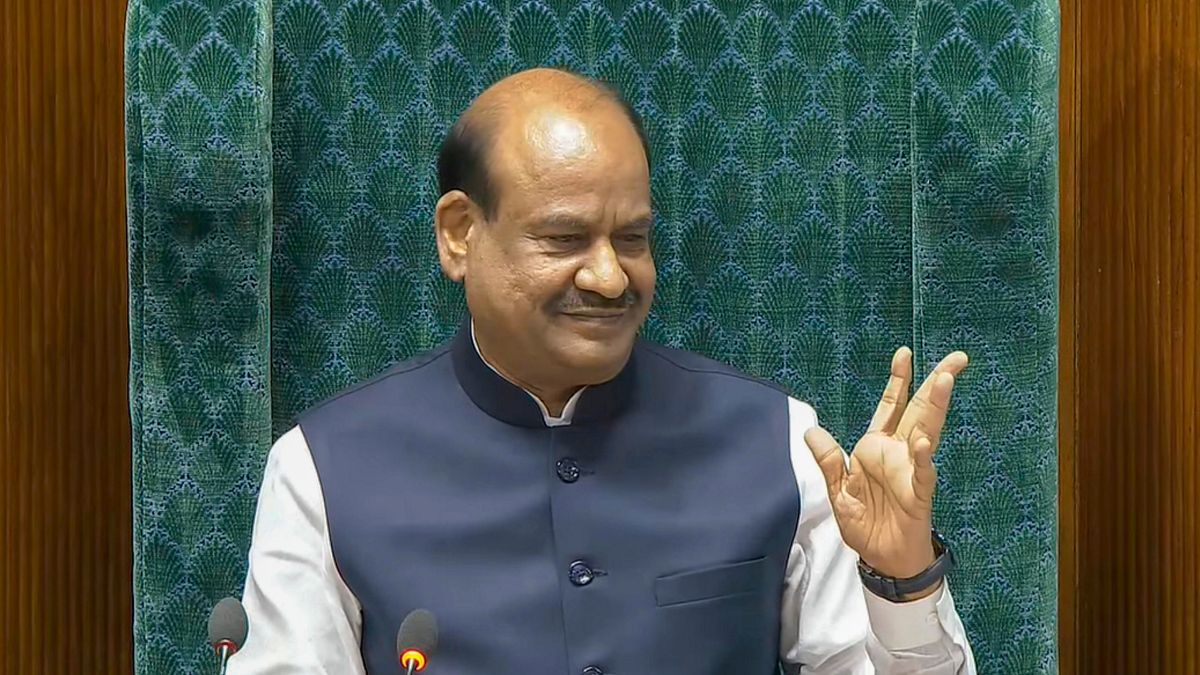The Lok Sabha Speaker and the Congress are at loggerheads over the functioning of microphones in the lower house. Om Birla said on Monday (July 1) that the presiding officers do not have the switch or remote control to mute the mics of members of Parliament (MPs).
“The Chair only gives ruling/directives. The member whose name is called gets to speak in the House. The mic is controlled as per the directives of the Chair. The person sitting in the Chair does not have a remote control or a switch for the microphones,” he said.
His remark came after the Leader of the Opposition (LoP) in the Lok Sabha Rahul Gandhi claimed last week that his mic was turned off as he tried to bring up the issue of National Eligibility cum Entrance Test (NEET) irregularities.
What happened? If not Speaker, who controls the mics in the Lok Sabha? Let’s understand.
Congress’ charge at LS Speaker
On Friday (June 28), Congress MP Rahul Gandhi said his mic was switched off, asking the Speaker to turn it on.
The LoP demanded a “respectful” discussion on the NEET row to express solidarity with students when the lower house reassembled at noon. Birla responded by telling Gandhi to adhere to House norms and protocol and seek a discussion after the Motion of Thanks to the President’s address.
“I don’t have any button to switch off the microphone. There existed a similar set-up earlier. There is no mechanism to gag the microphone,” the Lok Sabha Speaker said, as per PTI.
Impact Shorts
More ShortsThe Congress shared a video on X of the exchange between Gandhi and Birla . It alleged a “conspiracy” to “suppress the voice of youth by switching off microphones in Parliament”.
Why speaker @ombirlakota switched off LOP Sri Rahul Gandhi’s mic when he was raising an important issue related to the future of our students? #NEET pic.twitter.com/9bEWuU8QjB
— Congress Kerala (@INCKerala) June 28, 2024
Who controls the mic in Parliament?
Each MP has an assigned seat in the House. All the members have a microphone and switch set at their specific desks with allocated numbers.
According to the manual released by the Lok Sabha Secretariat in May 2014, the switch board has multiple switches in different colours. If an MP wants to speak in the House, they can raise their hand to notify the presiding officer and press the grey button.
The LED on microphones turns red when the mic is activated.
The microphone is “activated from the control room only when the member has been permitted by the Speaker to speak”, Indian Express reported citing the manual.
As per an India Today report, both the Lok Sabha and Rajya Sabha have a chamber for sound technicians, who are part of the staff that transcribes and records the proceedings of Parliament.
The chamber has an electronic board with assigned seat numbers of the members.
Mics are turned on and off from this room, which has a glass facade through which the staff can see the presiding officers and the MPs, the report added.
Speaking to India Today, P Wilson, DMK Rajya Sabha MP and senior advocate said, “Microphones are activated under the directions of the Chair of the Rajya Sabha. They are only turned on when a member is called by the Chair.”
“In the Zero Hour, a three-minute time limit is given to a member, and when the three minutes are over, the microphone is automatically switched off. In cases of debates on bills, time is allocated for each party. The Chair adheres to this time and, at its discretion, grants one or two minutes for a member to complete,” he added.
Only the Lok Sabha Speaker and Rajya Sabha Chairman can direct the switching on and off of mics in special circumstances, as per the India Today report.
The report mentioned citing a journalist covering Parliament proceedings that a member’s mic “might be switched off” if it is not their turn to speak. “In the case of Special Mentions, MPs have a limit of reading out 250 words. The moment it is read by the member, the microphone is switched off by the staff in the chamber.”
Previous row over muting mics
This is not the first row over the muting of mics between Birla and the Opposition.
Last July, during Birla’s first term as the Lok Sabha Speaker, Leader of the Opposition in the Rajya Sabha and Congress chief Kharge said he was “insulted” when his mic was switched off while he was speaking in the upper house.
“It was a breach of my privilege. This is my insult. My self-respect has been challenged. If the House is run on the instructions of the government, I understand that it is not a democracy,” he had said.
Rahul Gandhi had even raised the issue of “silencing” of microphones of Opposition leaders in the Lok Sabha while addressing an event at the British House of Parliament last March.
The Bharatiya Janata Party (BJP) had targeted Gandhi for making these remarks abroad.
With inputs from agencies


)

)
)
)
)
)
)
)
)



